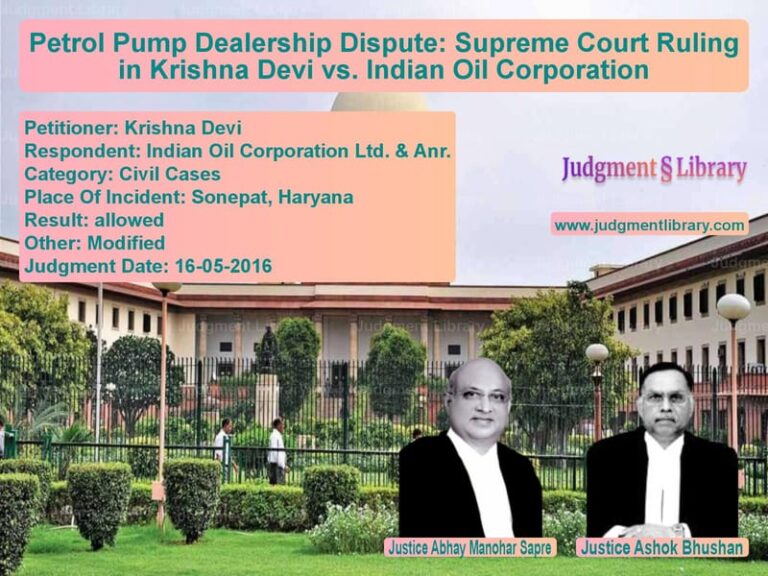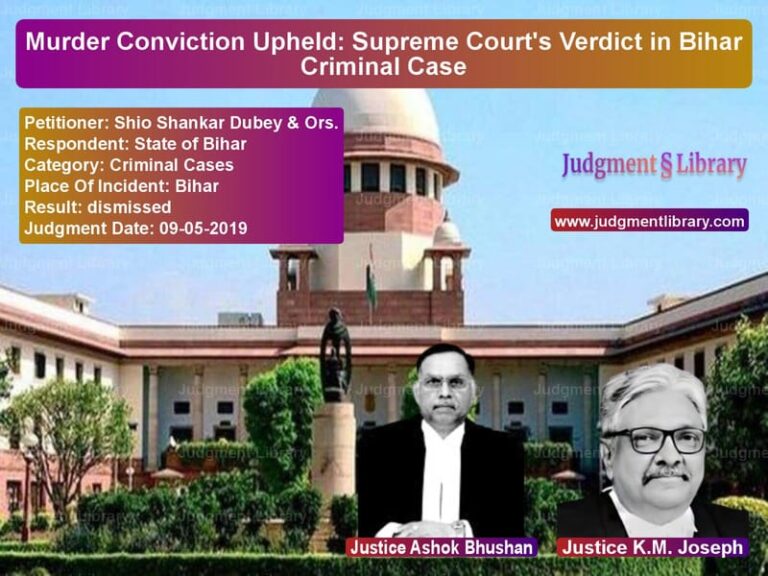Franklin Templeton Mutual Fund Case: Supreme Court Rejects Distributors’ Commission Claim
The case of Franklin Templeton Trustee Services Private Limited vs. Amruta Garg & Others revolved around the winding up of six mutual fund schemes by Franklin Templeton Asset Management (India) Private Limited and the subsequent dispute regarding commission payments to mutual fund distributors. The Supreme Court was called upon to determine whether distributors were entitled to commissions after the cessation of business activities in these schemes.
Background of the Case
On April 23, 2020, Franklin Templeton decided to wind up six of its mutual fund schemes due to liquidity concerns. Following this decision, the trustees and the asset management company ceased all business activities related to these schemes in compliance with Regulation 39(3)(b) of the Securities and Exchange Board of India (Mutual Funds) Regulations, 1996. The unitholders later approved the winding-up process as per Regulation 18(15)(c).
Amidst this process, the Foundation of Independent Financial Advisors (FIFA), representing mutual fund distributors, filed an application claiming commission payments for the period from April 23, 2020, to March 17, 2021. They argued that the commissions, categorized as ‘recurring expenses’ under Regulation 52(4)(b), should be paid even after the schemes ceased operations.
Read also: https://judgmentlibrary.com/supreme-court-overrules-high-court-stay-in-sarfaesi-act-dispute/
Key Legal Issues
The Supreme Court was tasked with answering the following key questions:
- Were mutual fund distributors entitled to commission payments after the winding-up notice under Regulation 39(3)(b)?
- Did the commissions qualify as ‘due and payable’ expenses under Regulation 41(2)(b)?
- Was Franklin Templeton legally bound to pay commissions from the fund assets post-closure?
Arguments Presented
Petitioner (FIFA) Arguments
- FIFA contended that mutual fund distributors were contractually entitled to commissions, which were categorized as recurring expenses under Regulation 52.
- They argued that trail commissions should continue as they had accrued before the notice of winding-up was issued.
- FIFA cited the SEBI circular dated October 22, 2018, which mandated a full trail model of commissions, disallowing any upfront payments.
- They insisted that since the commissions were already factored into the expenses of the mutual fund schemes, distributors were entitled to receive them.
Respondent (Franklin Templeton) Arguments
- Franklin Templeton argued that once the schemes ceased business operations on April 23, 2020, no further expenses, including commissions, could be charged to the fund assets.
- They emphasized that Regulation 40 mandated an immediate cessation of business activities once winding-up was initiated.
- They contended that commissions were only applicable while the scheme was operational, not during the liquidation phase.
- Franklin Templeton cited its affidavit stating that it had voluntarily absorbed Rs. 40 crores in liquidation expenses rather than charging them to the unitholders.
Supreme Court’s Analysis and Judgment
The Supreme Court thoroughly analyzed the regulatory framework governing mutual funds and the nature of commission payments.
Key Observations by the Supreme Court
- The Court held that Regulation 52 applies only when a scheme is operational. Once winding-up commences, expenses such as commissions cannot be charged to the scheme.
- It clarified that expenses related to winding-up are governed by Regulation 41, which does not include distributor commissions.
- The Court stated that commissions are linked to ongoing fund management, and since Franklin Templeton had stopped creating and redeeming units, there was no legal basis to pay commissions post-closure.
- The ruling emphasized that allowing commissions would contradict the regulatory objective of ensuring fair treatment to unitholders.
- It held that mutual fund distributors were not direct claimants under Regulation 41(2)(b) since their payments were routed through the asset management company.
Key Court Statement
“Regulation 52, which permits the deduction of expenses, including distributor commissions, applies only when the scheme is in operation. Once winding-up is initiated under Regulation 39(3)(b), the asset management company cannot carry on business activities, including making commission payments.”
Final Judgment
- The Supreme Court dismissed FIFA’s claim for commission payments.
- It upheld that mutual fund distributors had no legal entitlement to commissions after the winding-up notice was issued.
- It ruled that expenses chargeable to the scheme must be strictly in line with winding-up regulations, excluding commissions.
- It recorded Franklin Templeton’s statement that Rs. 40 crores in liquidation expenses were not charged to unitholders.
Implications of the Judgment
This ruling has far-reaching implications for the mutual fund industry:
- It sets a precedent that commissions are not payable once a scheme enters the winding-up phase.
- It reinforces regulatory principles that protect unitholders from unnecessary expenses during liquidation.
- It clarifies the interpretation of SEBI regulations concerning scheme closures and expense management.
- It ensures asset management companies are not burdened with distributor claims beyond the operational phase.
Conclusion
The Supreme Court’s ruling in this case provides a critical precedent for mutual fund regulation in India. By affirming that commissions are inapplicable post-winding-up, the judgment safeguards investor interests and maintains the integrity of the regulatory framework. The decision ensures that expenses are aligned with the legal mandate and that asset management companies are not burdened with unwarranted claims.
Petitioner Name: Franklin Templeton Trustee Services Private Limited.Respondent Name: Amruta Garg & Others.Judgment By: Justice S. Abdul Nazeer, Justice Sanjiv Khanna.Place Of Incident: India.Judgment Date: 12-08-2022.
Don’t miss out on the full details! Download the complete judgment in PDF format below and gain valuable insights instantly!
Download Judgment: franklin-templeton-t-vs-amruta-garg-&-others-supreme-court-of-india-judgment-dated-12-08-2022.pdf
Directly Download Judgment: Directly download this Judgment
See all petitions in Company Law
See all petitions in Corporate Compliance
See all petitions in Bankruptcy and Insolvency
See all petitions in unfair trade practices
See all petitions in Judgment by S. Abdul Nazeer
See all petitions in Judgment by Sanjiv Khanna
See all petitions in dismissed
See all petitions in supreme court of India judgments August 2022
See all petitions in 2022 judgments
See all posts in Corporate and Commercial Cases Category
See all allowed petitions in Corporate and Commercial Cases Category
See all Dismissed petitions in Corporate and Commercial Cases Category
See all partially allowed petitions in Corporate and Commercial Cases Category







